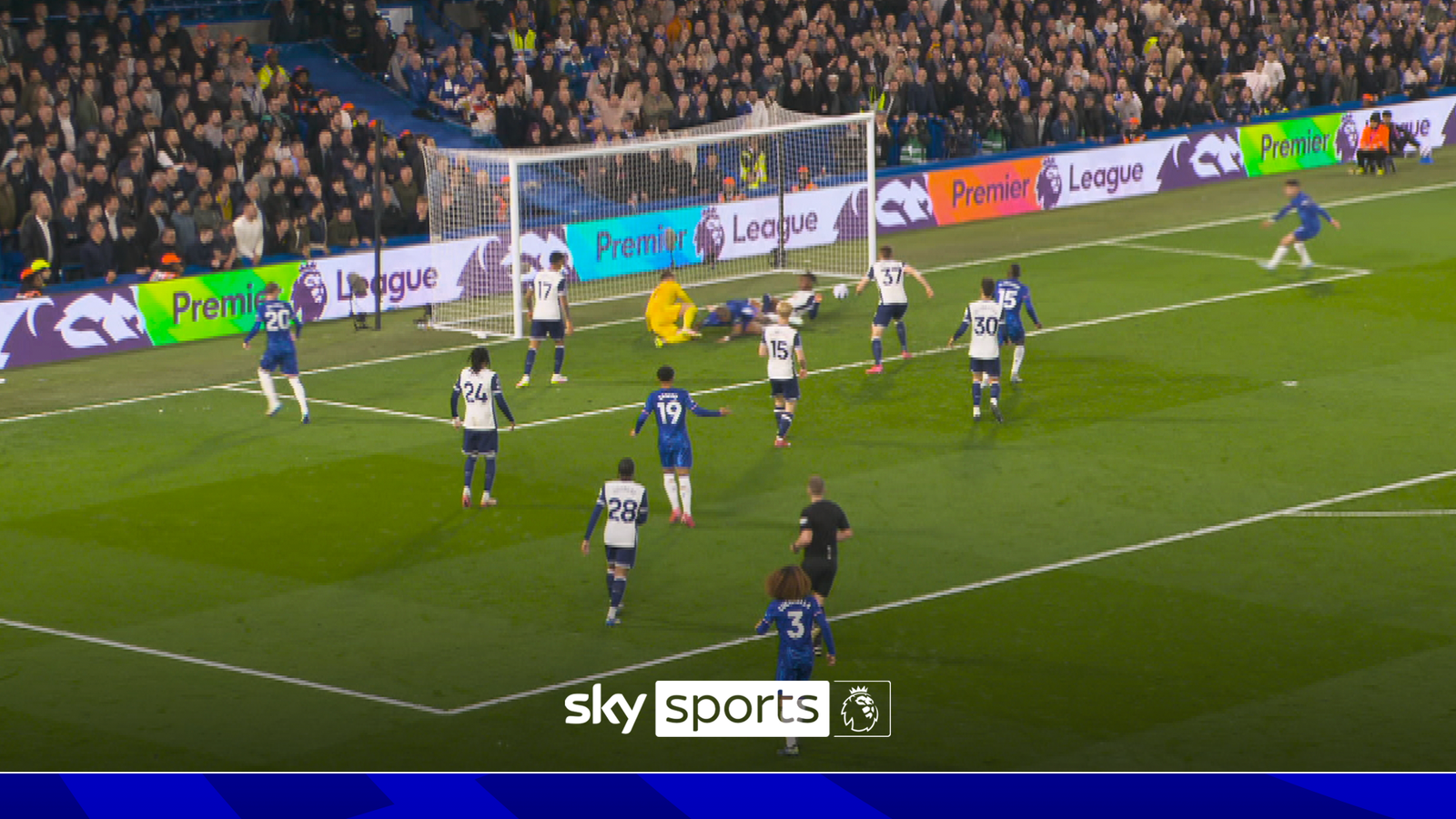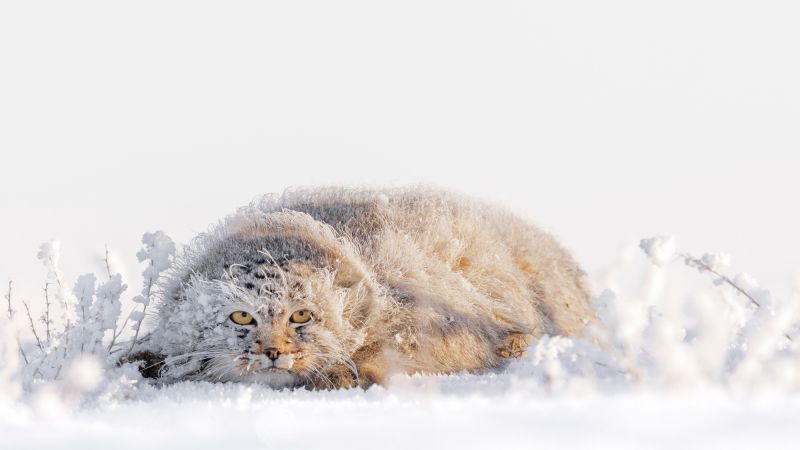Starmer: UK facing 'generational challenge on national security'
Sir Keir Starmer has warned that the UK is facing a "generational challenge when it comes to national security" ahead of jetting to Paris for emergency talks with European leaders on the war in Ukraine.
Speaking in Bristol, the prime minister told broadcasters: "We're facing a generational challenge when it comes to national security.
"Obviously, the immediate question is the future of Ukraine, and we must continue to put Ukraine in the strongest possible position whatever happens next, and to make sure that if there is peace – and we all want peace – that it is lasting."
But he said there is a "bigger piece here as well", saying the challenge we face "isn't just about the front line of Ukraine".
"It's the front line of Europe and of the United Kingdom. It's our national security," he said.
Watch the PM's comments below...
Downing Street won't guarantee vote on sending troops to Ukraine
The prime minister's spokesman has been asked whether a decision to commit British troops to a Ukraine peacekeeping force would be subject to a vote by MPs - and did not give a guarantee.
Sir Keir Starmer had promised there would be votes on such military action when he became Labour leader.
Last year, before the election - when backing a decision to launch air strikes on Yemen – he said it would only apply when "deploying troops".
The PM's spokesman said parliament would "absolutely be consulted and updated as appropriate" on any decision to deploy.
But asked whether this meant a vote, he said this was getting ahead of ourselves - given no decision has yet been taken.
Given Labour's vast majority, and that Conservative and Lib Dem leaders have backed the PM's announcement, there's little risk he would lose such a vote.
Starmer to travel to Washington DC for Trump meeting next week, Downing Street confirms
Downing Street has confirmed Sir Keir Starmer will meet Donald Trump next week, and will make the journey to the White House for the talks.
Confirmation of the meeting comes as the PM downplays any splits with the US over Ukraine and European security after the US president unilaterally opened talks with Russia and told Europe it needs to take more responsibility for its own defence.
Of the topics on the agenda for the meeting, the PM's official spokesperson told reporters: "There's going to be a wide range of issues that we'll be working with the new US administration on.
"The prime minister looks forward to meeting President Trump shortly to discuss how we can deepen the special relationship across trade, investment, and security."
Trump said earlier this week that it was Starmer who asked for the meeting - watch his comments below…
PM downplays US-Europe splits - but says 'credible answers' needed for peace in Ukraine
There have been reports Sir Keir Starmer wants to be the bridge between the Trump administration in the US and European allies.
Asked if that is the role he envisages, the PM downplayed any notion of splits between allies, telling broadcasters: "I think what the US wants to achieve is lasting peace in Ukraine that aligns precisely with what we want in the UK, what Ukraine wants, and what our European allies want.
"What we now need to do is to make sure that we work together on a plan that could get us to that point."
That, Starmer argued, is why there has to be a focus on "the immediate questions in Ukraine", as well as the "wider picture", and for European powers to "step up" defence capabilities and funding.
'Putin can't be given chance to come again'
Asked how high the stakes will be at the emergency talks in Paris with European leaders on Ukraine later today, Starmer replied it's "very important… to try to move forward", and noted the conflict could end tomorrow "if Russia, the aggressor, pulled back".
"But until we get a peace agreement, we must ensure Ukraine is in the strongest possible position," he said.
"We don't know what's going to happen next, and we need to have realistic and credible answers to how any ceasefire, how any peace agreement, will be lasting, just and enduring.
"The last thing I want to see is a pause in the fighting that simply gives Putin the chance to come again, which is why it's very important that we have these discussions."
PM calls on Europe to 'step up' defensive capabilities and spending
The prime minister is calling on European allies to "step up" when it comes to both defensive capabilities and increasing defence spending.
Sir Keir Starmer told broadcasters Europe must be committed to "playing our full part when it comes to the defence of the sovereignty of Ukraine if there's a peace agreement, and, of course, when it comes to funding and training".
But while the UK government has committed to spending 2.5% of GDP on defence, it has not yet set out a timeline for doing so.
'We must spend more'
Starmer reiterated his view that "we have to spend more on defence", which is why that commitment was made - but he did not shed further light on a timeline for hitting the 2.5% target.
He said: "We are going through a strategic review of defence at the moment, which is looking at the challenges and the capability, and then we’ll set out that path.
"Part of my message to our European allies is that we've all got to step up on both capability and on spending and funding. Now, that includes the UK, which is why I've made that commitment to spend more."
Watch: Richard Tice tells Ali Fortescue man-made climate change is 'garbage'
Richard Tice, the deputy leader of Reform UK, spoke to our political correspondent Ali Fortescue this weekend.
He claims that man-made climate change is "garbage".
Watch the full exchange:
British peacekeepers 'might end up fighting Russians'
A former top British diplomat has told Sky News he is "wary" about the prospect of UK troops being sent to Ukraine as part of a potential peacekeeping force.
Lord Peter Ricketts, a former national security adviser to David Cameron, said it needed to be made "very clear" what role British troops would play and what would happen if a ceasefire agreement were to break down.
It comes after Prime Minister Sir Keir Starmer said he was prepared to put "our own troops on the ground if necessary" as part of a deal to end the war with Russia.
Speaking to Sky's Wilfred Frost, Ricketts said the comments, coupled with the meeting today of European leaders in Paris, represented a "very significant moment".
But he added: "I'm wary about the term peacekeeping. What it has meant in the past is putting your troops between two potential adversaries and, if necessary, willing to fight to keep the peace.
"That might mean British soldiers fighting Russians."
Should 'peacekeepers' be on the frontline?
Ricketts said he did not believe Moscow would "accept a peacekeeping force made up only of Ukraine's friends."
He added: "They would want their friends as well, so you might have Chinese or Iranian troops or others deployed on their side of the line.
"I think a better concept is a stabilisation force [of] European forces in Ukraine, but not necessarily on the frontline."
The former top diplomat said such a deployment would allow Western nations to show "support and solidarity" to Ukraine.
He added: "Let's be very clear what it [a peacekeeping force] is for, and where it would deploy, and what would happen were a ceasefire to break down."
Can the UK afford boots on the ground in Ukraine?
Donald Trump's election victory and subsequent tough rhetoric on ending the war in Ukraine has added a sense of urgency to discussions between European leaders.
But as the prime minister prepares to fly to Paris to persuade European allies to spend more on defence, his critics would tell him to get his own house in order first.
On Sky News, Health Secretary Wes Streeting argued the "imperial expansionist ambitions of President Putin" pose a threat to European security, and that Starmer's promise to send UK troops to Ukraine as part of a peacekeeping force was essential to British national security.
But in his usual candid fashion, Streeting acknowledged the ongoing fight for cash around the cabinet table, explaining all those in government have been contending with the economic inheritance left by the Tories.
"There is no greater priority for any government worthy of the name than the security of the nation," he said - on the same day as his big announcement about delivering two million extra NHS appointments seven months ahead of schedule.
Tax hikes to boost the army?
He was signalling that tough decisions and compromises may need to be taken in order to protect national security and deter Russia from further invasions of sovereign territory.
As the strategic defence review continues, while the US demands Europeans increase their defence spending to 5% of GDP, the health secretary did not rule out tax hikes to boost the armed forces.
An unenviable job for the chancellor
Streeting insisted manifesto pledges were made in good faith at the time of the election, but if the government is to appease military chiefs, who are hammering for a figure closer to 2.65% of GDP, where will Labour find the money?
If Starmer decides to go further than his current target – spending 2.5.% of GDP on defence – it will be Chancellor Rachel Reeves lumbered with the unenviable job of taking yet more money off the public during a cost of living crisis or cutting already struggling public services.
Politics At Jack and Sam's: Can Starmer save Ukraine?
Sky News’ deputy political editor Sam Coates and Politico's Anne McElvoy look at the day ahead in British politics.
Although it's recess, Sam and Anne explain why this week could be a major moment in British politics as they discuss whether the Transatlantic alliance has collapsed.
Anne shares her insider analysis from the Munich Security Conference, where Ukraine was top of the agenda, and Sam breaks down what the implications from the dramatic conference are for Britain.
Plus, they outline what to expect from the rest of the week.
👉Listen to Politics At Jack And Sam's on your podcast app👈
You can send us a WhatsApp on 07511 867 633 or email us: [email protected]
Badenoch: Tory party is 'starting largest renewal of policy and ideas in a generation'
Kemi Badenoch goes on to say that society will "have to decide between the true but hard way, that needs tough decisions and bravery, or whether we have more slogans and announcements, but no plan".
She says the public should not listen to the "media class complain about populism", saying that democracy is "acknowledging the will of everyday people then actually making it happen".
Populism only becomes "corrosive" when action does not accompany words, the Tory leader argues.
"For those of us who seek leadership, we must do better, and that is why in the United Kingdom, my party is starting the largest renewal of policy and ideas in a generation."
In conclusion, Badenoch says: "If we get this right, we stand at the dawn of a new conservative century, with so much opportunity and possibility.
"If we throw this opportunity away because of anger, or self-doubt, or weakness, our country and all of Western civilisation will be lost."
.png)
.jpg) 1 month ago
25
1 month ago
25









 English (US) ·
English (US) ·